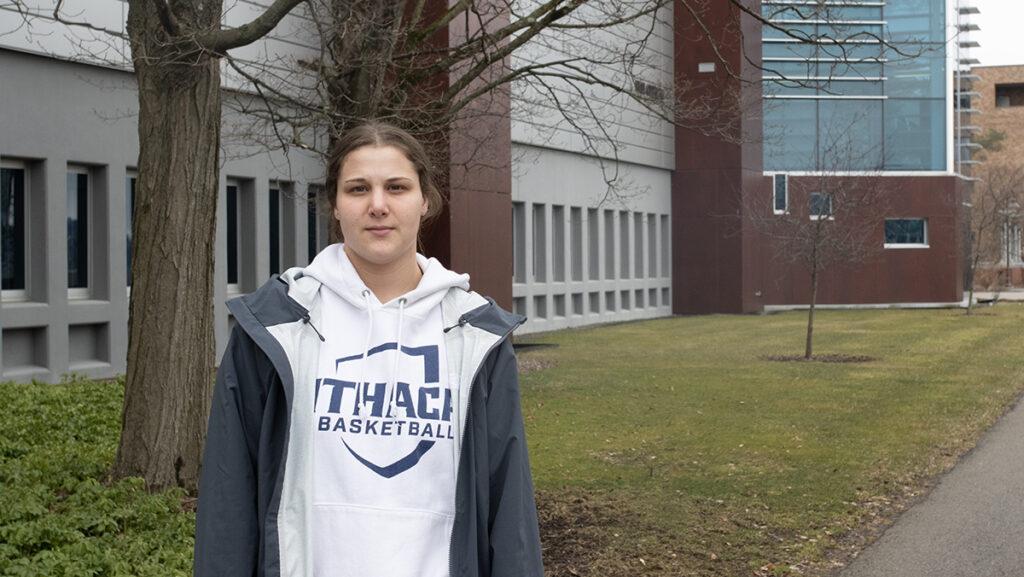Editor’s Note: This is a guest commentary. The opinions do not necessarily reflect the views of the editorial board.
Playing a sport is a dangerous game, not just for the physical strain it puts on one’s body but the mental effects it has, too. There are athletic trainers at hand, at every practice, every game and every moment while you are playing a sport. At Ithaca College, there are options, but rarely any that are emphasized as resources as often as we would hope. A new study has shown that 92% of colleges fail to deliver mental health support for student-athletes. This study also concluded that 90% of athletic directors believe their institutions do not offer enough training or psychiatric support services for student-athletes and their coaches. It is important that athletes at the college feel supported and there are just not enough specified positions at the college that can provide that feeling for us.
The tragic death of Stanford University women’s soccer player Katie Meyer in March 2022, and public figures like Naomi Osaka, Michael Phelps and Simone Biles who have spoken out increasingly in the past few years, have propelled the conversations and opened eyes to the need for mental health assistance. The best in the world are battling their mental health, and student-athletes in college are no different.
At the college, the mental health option is the Center for Counseling and Psychological Services, which offers a hybrid of virtual and in-person services. CAPS offers individual therapy, group therapy and support groups. There is also a Crisis and After-Hours On-Call number. That being said, there are not many opportunities for athletes specifically. As an athlete myself, when I have struggled, I have been urged to reach out to Greg Shelley, retired associate professor in the Department of Exercise Science and Athletic Training with a specialty in sports psychology, who is also the professor for the Leadership Academy that the college has for athletes. He has been a phenomenal resource, but he is the only resource in charge of the 27 varsity teams the college has. That is a 1 to 823 ratio of mental health sports professionals to student-athletes. Although he is phenomenal, it feels important that there be more than just one sports psychologist that athletes can go to.
In 2022, the athletic department had Victoria Garrick come to speak to the athletes. She is a TED Talk speaker, mental health advocate, podcast host and a former Division I Athlete. This was a huge step in the right direction to get the ball rolling on having hard conversations; the feedback from having her was so positive. Since then, the common feeling at the college has been, “When can someone like that come to speak to us again?”
At Ithaca College, we also have a program called the Hidden Opponent, a national non-profit and advocacy group that raises awareness for student-athlete mental health and addresses the stigma within the sports culture. This program is great but goes unnoticed and some form of awareness of what our chapter of this program does could be very beneficial.
Within the U.S., 80% of the students report feeling stressed, while 34% feel depressed. Then add on the workload that being an athlete holds. In this day and age, with mental health being such a big topic, we need to address these problems and tackle them head-on.
Dr. Liz Jodoin, a clinical solutions consultant at Mantra Health said: “We’ve also seen that student-athletes are less likely to seek help than non-athletes since many have been conditioned to play through physical, emotional, and psychological pain. As a result, this has contributed in part to higher rates of stress, anxiety, depression and, in many cases, has exacerbated pre-existing mental health conditions.”
Ithaca College athletes are just looking for a little more support from a professional standpoint. What we do on a day-to-day basis is taxing, and there should be options and resources at hand to help the students here put their best foot forward on and off the court.
Hannah Polce (she/her) is a junior Integrative Marketing Communications major. Contact her at [email protected].















